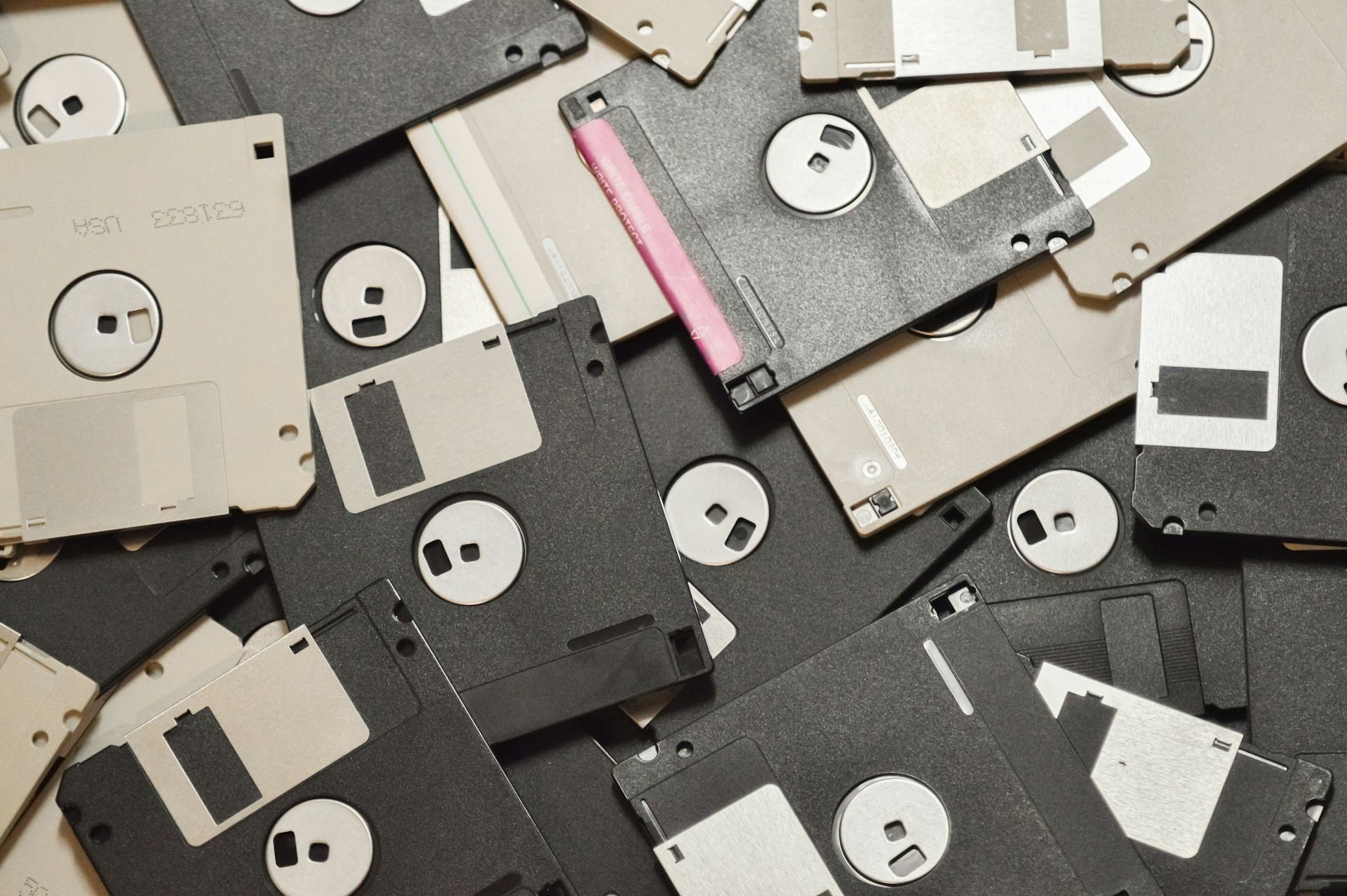In 2025, as the world debates artificial intelligence, low-earth orbit satellites, and supercomputers, New Jersey’s state prison seems frozen in the 1980s. There, inmates who need to work on their legal appeals are forced to use 3.5-inch floppy disks, enduring all the limitations of a format discontinued in 2011.
The case was brought to light by Jorge Luis Alvarado, an inmate at that prison, in an article published by the Prison Journalism Project (PJP) and covered by tech outlets like Tom’s Hardware. His testimony highlights how the digital divide within the U.S. correctional system can impact fundamental rights, such as access to a fair defense.
Justice Limited to 1.44 MB
Alvarado’s lawyers, like most today, send documents via USB drives. However, possession of these devices is not allowed inside the prison. The only option is to transfer files onto floppy disks from a specialized computer in the center’s legal library.
These disks offer a mere 1.44 MB of storage—ridiculous by today’s standards. “A single legal brief can easily take up two disks,” Alvarado reports. Sometimes two aren’t enough. If the case file includes attachments, previous rulings, or digitized evidence, the fragmentation multiplies, and managing the files becomes chaotic.
Inmates can have a maximum of 20 disks in their cells. Alvarado has 12 but warns that keeping them in good condition is challenging because floppy disks are fragile and easily corrupted, forcing inmates to duplicate copies as backups.
Technology Dead in the Outside World
The problem worsens because floppy disks are no longer produced. Sony, the last major manufacturer, ceased its line in 2011. In the “free world,” USB drives, cloud storage, and even CDs have long replaced floppy disks by over two decades.
Inside the prison, the technological ecosystem seems frozen in 1985. Inmates still use archaic word processors, electric typewriters, and, of course, floppy disks as the only portable storage medium allowed.
The paradox is clear: society is advancing toward digitalization and artificial intelligence, yet prisoners must build their defense with extinct technology.
The Cost of Technological Delay
Accessing the legal library to transfer files from USB to floppy disks can take days to authorize, a critical delay when legal deadlines are pressing. During appeals, where every hour counts, these delays become significant obstacles to effective legal defense.
Alvarado argues that this situation puts him at a disadvantage in the judicial system. “We could review documents in cells with offline laptops or restricted tablets, but that’s not permitted,” he writes.
Pros and Cons
Some criminal justice advocates argue that advanced technology should not be provided to inmates, citing security concerns or the risk of privileged access that could be misused.
However, human rights groups and justice experts warn that blocking access to basic technological means undermines inmates’ ability to prepare their defense.
Recent studies estimate that between 4% and 6% of incarcerated individuals in the U.S. might be innocent. For these cases, every technological obstacle adds an extra burden—potentially the difference between regaining freedom or remaining unjustly behind bars.
A Digital Divide with Human Consequences
While the New Jersey state prison boasts on its façade that it was built in 1835, inmates inside feel that even technological time has stood still.
Alvarado summarizes his situation bluntly: “We are trying to enter the modern world because we need it to do the most important job: advocate for our freedom.”
Meanwhile, the irony is evident: in an age when students store terabytes of data on portable disks, an inmate in the U.S. struggles to mount an appeal with just 1.44 MB of space and hopes their floppy disk doesn’t fail.
Frequently Asked Questions
Why do prisons ban USB drives but allow floppy disks?
The restriction is mainly for cybersecurity reasons. USB drives can contain malicious software or be used for unauthorized communication. Floppy disks, being virtually obsolete, are considered “safer,” even if ineffective.
When did floppy disks cease to be manufactured?
Sony was the last major producer, shutting down its line in 2011. Since then, they are only available on the secondhand market or through specialized vendors, limiting their availability.
What alternatives do inmates have for accessing legal documents?
Viable and secure options include offline restricted laptops, internal-use tablets, or controlled intranet systems that allow inmates to access their files without risking data leaks.
What risks do continued floppy disk use pose to judicial processes?
The main issues are data loss from file corruption, fragmentation across multiple disks, and delays in accessing legal resources, which hinder the timely filing of appeals and can undermine the right to a fair trial.

